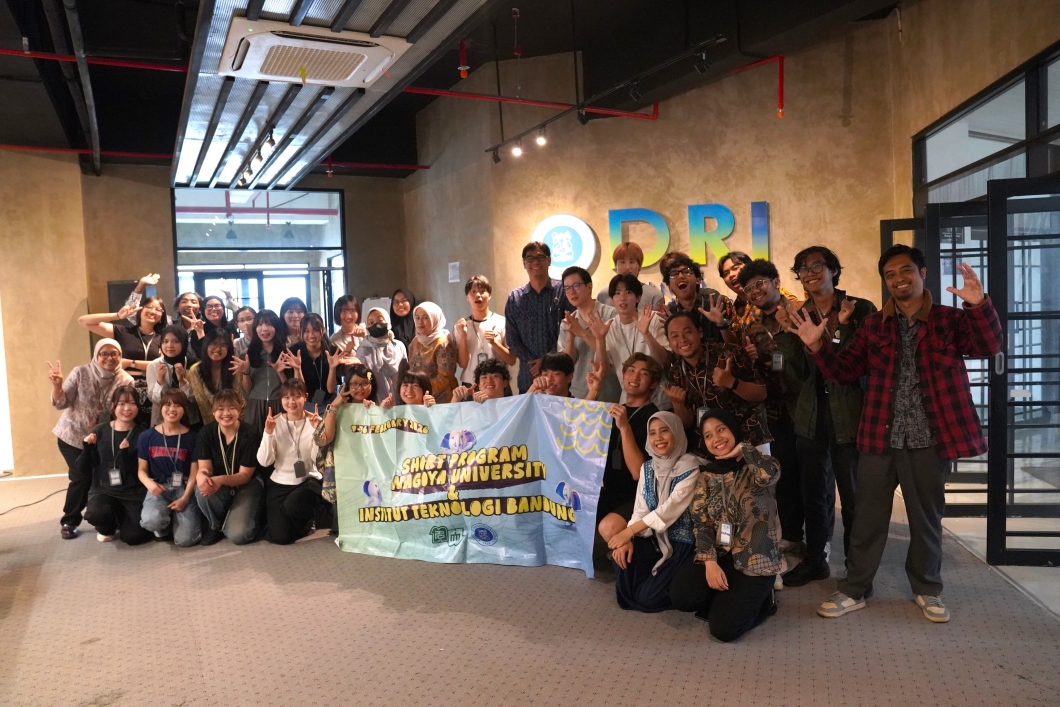Graduate School Orientation and Academic Regulation during NSO Activity ITB 2023
By Anggun Nindita
Editor Anggun Nindita

BANDUNG, itb.ac.id — The series of New Students’ Orientation Institut Teknologi Bandung (NSO ITB) was held on Monday (14/8/2023) in two locations, ITB Jatinangor Campus for Undergraduate Program and ITB Convention Hall (Sabuga ITB) for Graduate School and Professionals.
In the event, materials regarding the Graduate School (GS) was presented by the Vice Dean for Resources, Development and Partnership, Dr.rer.nat. Sophi Damayanti, S.Si., M.Si. Furthermore, the regulations for graduate academic programs were conferred by the Vice Dean for Academic, Student Affairs, and Quality Assurance, Prof. Dr.mont. M. Zaki Mubarok.
The Graduate School has a long history, originating in the 1920 as Graduate Education of Technische Hogeschool (TH) Bandung. Currently, there are 52 study programs for the Master program and 28 study programs for the Doctorate program.
Pursuing further education requires no meager cost, but graduate students could receive scholarships from ITB’s partnership schemes.
Partner’s scheme scholarships could be granted by the government, such as the Ministry, scholarship institutions, universities, as well as foreign support. Alternatively, ITB also provides scholarships such as Ganesha Talent Assistantship (GTA), Professor and Lecturer of Learning Development bursary, as well as community sponsorship.
Dr. Sophi also explained various activities held by the Graduate School including Alumni Sharing, scholarship and study program information webinars, New Students Orientation, IGSC (ITB Graduate School Conference), Basic Academic Competency Test, as well as a few Students’ Association and Postgraduate Activity Unit.
The postgraduate program consists of the Masters’ program, designed with an academic load of 36 credits at minimum and Doctorate program, designed with an academic load of 42 credits at minimum. For a postgraduate program, 1 (one) credit is equivalent to 5 (five) hours per week of students’ learning, each semester. “For high-achieving master’s students, they could take more than 12 credits, at maximum 15 credits, if their previous semester average accumulated 3.5 or more and has received permission,” stated Prof. Zaki.
Publication is one condition required for master and doctorate program students to graduate. For master, a scientific publication adhering to the requirement includes national or international journal with an ‘under review’ status, or is registered as artwork presenter of national-level exhibition, or as presenter in international level scientific programs, or in local-level design planning.
Meanwhile, the doctorate program has one graduation requirement, which is to have a minimum of one paper with accepted status as the primary writer, affiliated with ITB to be published in an internationally reputable scientific journal.
The education stages to be passed by doctorate program students include preparation, proposal writing, research, and dissertation exam.
Reporter: Yohana Aprilianna (Urban and Regional Planning, 2021)
Translator: Firzana Aisya (Bioengineering, 2021)
Editor: Hanifa Juliana (Urban and Regional Planning, 2020)




.jpg)
.jpg)

.jpg)